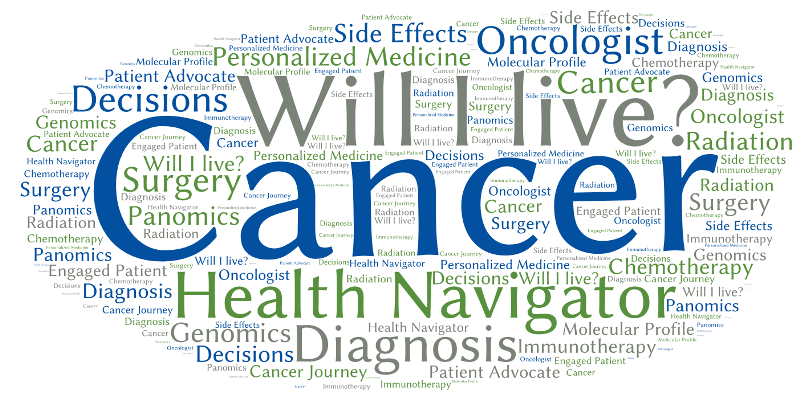The growth of Healthcare Navigators and Patient Advocates as support services for patients is reasonably new, but stems from the changes in our health care system over the past fifty years. There is the good news in these changes with, for instance, myriad advances in medicine, a wealth of online resources and an awareness of good health practices. But the bad news, outside of the cost of care and how it is paid for (a subject for a future discussion), is the fragmentation of care in chronic illness. Additionally, somewhere along the way, the patient fell out of focus—such that providers now emphasize having “patient-centric” care. (If the patient is not centric to the provision of medical care, one could ask: what is?)
That aside, the challenges of navigating a medical journey today are numerous: care in chronic conditions is complex, involving multiple silos of experts though rarely an integrative plan; there are no roadmaps so it is difficult to plan or to manage expectations; and there are many moving targets in the science of medicine. In many cases, patients lack access to the most current, clinically relevant knowledge that would enhance the quality of their decision-making about treatment strategies. There are nascent efforts underway to address this gap, such as at Cancer Commons and Patients Like Me—but there is a long way to go before patients have consistent access to this kind of data.
Healthcare navigators and patient advocates help knit together these disjointed elements into more comprehensive ecosystems of care; we pay attention to issues of patient safety and comfort, support care givers and make sure that personal values and quality of life considerations are integrated into plans of care. We can help narrow the information gap through our resources, knowledge and research; and plot a roadmap of care that integrates with a patient’s busy life and commitments.
The challenges for patients today are clearly highlighted in Tom Brokaw’s book, A Lucky Life Interrupted, in which he reveals his diagnosis with multiple myeloma and his journey through the medical system. He notes that in: “too many healthcare facilities and in too many specialized practices the patient is a one-off: advised or treated and then passed along with no connecting communication between the last and next physician. One of the enduring lessons of my cancer experience is that of the need for a personal ombudsman…”. In Brokaw’s case, his daughter –an emergency room physician—served as his advocate. For others who do not have doctors or nurses in the family, there is now the option of hiring a professional health care navigator and advocate.
Mr. Brokaw is being treated by doctors at the Mayo Clinic, where he sits on the Board, and at Memorial Sloan Kettering, which is near his home in New York City. He acknowledges that he is receiving the best of the best in terms of medical care—and yet even in these circumstances, he reveals “…his growing discomfort with the lack of shared dialogue in my treatment. With the exception of the MIA physical rehab physician, all the doctors were individually attentive, but rarely did I feel they were wearing the same team colors.” Brokaw acknowledges the immense pressure most doctors operate under, and states “In complicated cases, it seems to me that the patient-team relationship should be seamless and all inclusive.” Hear Hear!
I regret for Mr. Brokaw that he is having to undergo this experience but am very appreciative of his willingness to be frank with his readers about the hurdles he faced as he sought information about his condition, and options in care. And I thank him for sharing his observations that navigating and managing a cancer journey is difficult, even in the best of circumstances. For those who do not have medical providers as family members, if and when you face a complex illness, consider hiring a navigator or advocate. We are here to help you.


